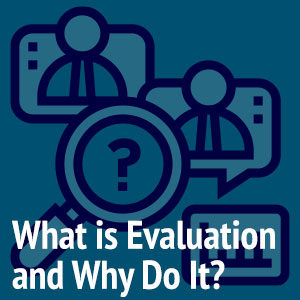
Asking questions is a critical aspect of learning. We’ve previously written about the importance of questions in our blog post “Evaluation Research Interviews: Just Like Good Conversations.” In a recent article, “The Surprising Power of Questions,” which appears in the Harvard Business Review, May-June, 2018, authors Alison Wood Brooks and Leslie K. John offer suggestions for asking better questions.
As Brooks and John report, we often don’t ask enough questions during our conversations. Too often we talk rather than listen. Brooks and John, however, note that recent research shows that by asking good questions and genuinely listening to the answers, we are more likely to achieve both genuine information exchange and effective self-presentation. “Most people don’t grasp that asking a lot of questions unlocks learning and improves interpersonal bonding.”
Although asking more questions in our conversations is important, the authors show that asking follow-up questions is critical. Follow-up questions “…signal to your conversation partner that you are listening, care, and want to know more. People interacting with a partner who asks lots of follow-up questions tend to feel respected and heard.”
Another critical component of a question-asking is to be sure that we ask open-ended questions, not simply categorial (yes/no) questions. “Open-ended questions …can be particularly useful in uncovering information or learning something new. Indeed, they are wellsprings of innovation—which is often the result of finding the hidden, unexpected answer that no one has thought of before.”
Asking effective questions depends, of course, on the purpose and context of conversations. That said, it is vital to ask questions in an appropriate sequence. Counterintuitively, asking tougher questions first, and leaving easier questions until later “…can make your conversational partner more willing to open up.” On the other hand, asking tough questions too early in the conversation, can seem intrusive and sometimes offensive. If the ultimate goal of the conversation is to build a strong relationship with your interlocutor, especially with someone who you don’t know, or don’t know well, it may be better opening with less sensitive questions and escalate slowly. Tone and attitude are also important: “People are more forthcoming when you ask questions in a casual way, rather than in a buttoned-up, official tone.”
While question-asking is a necessary component of learning, the authors remind us that “The wellspring of all questions is wonder and curiosity and a capacity for delight. We pose and respond to queries in the belief that the magic of a conversation will produce a whole that is greater than the sum of its parts. Sustained personal engagement and motivation—in our lives as well as our work—require that we are always mindful of the transformative joy of asking and answering questions.”
Resources:
“The Surprising Power of Questions,” Alison Wood Brooks and Leslie K. John. Harvard Business Review, May–June 2018 (pp.60–67)



